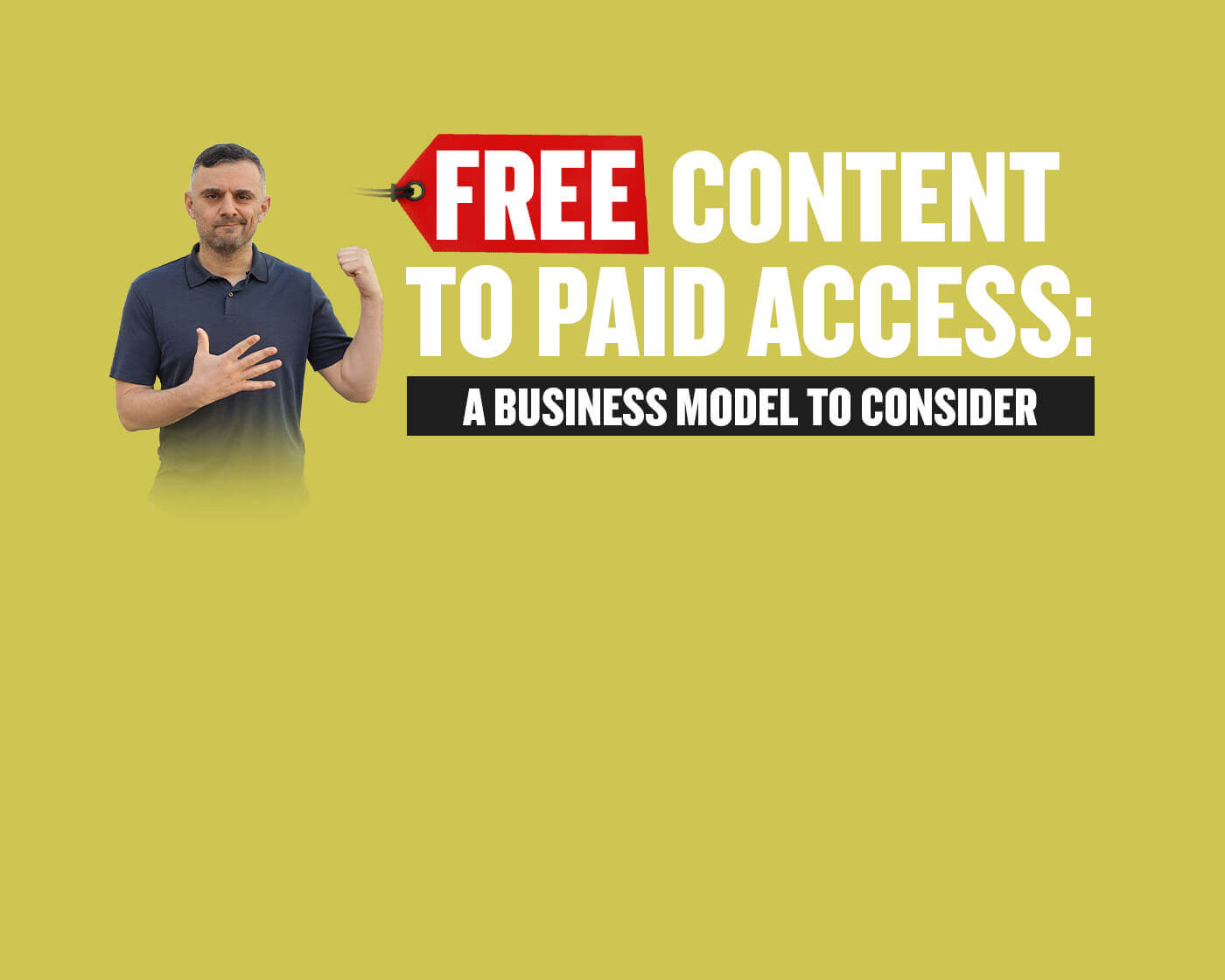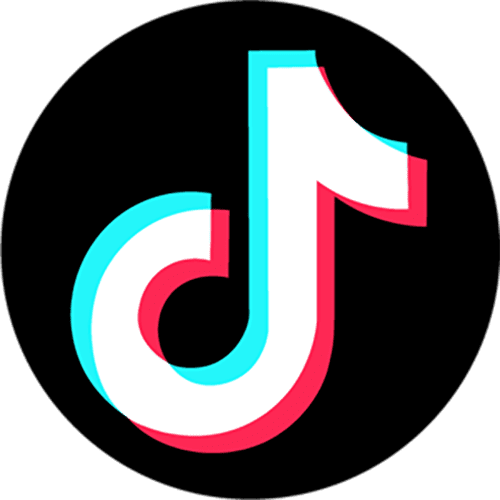There are different business models out there for content creators and professionals to monetize, but I want to suggest one in this article that I’m a huge fan of.
Let me explain:
When you’re a content creator on the internet with an audience, you could monetize with a course, membership products that send people audio or video content, ebooks, or other types of information.
I don’t think there’s anything wrong with those things, and I think there are plenty of people that have built incredibly valuable courses and information based on their expertise. I think it’s amazing if you built a business you love that you’re passionate about that’s built on the back of that.
But a business model that I really love – that I think is incredibly valuable – is the concept of putting out free content and monetizing with paid “access.”
“Getting an hour of your time is less scalable, therefore more valuable.”
I think ebooks and online courses are stunningly commoditized, and it’s becoming increasingly difficult to differentiate from people that are putting out more and more of that information for free. There’s a value in curation for sure – there’s value packaging information and advice so that people don’t have to spend time searching on Google or YouTube. But at the end of the day, what others can’t replicate is you the human.
You could sell a $19 ebook or a $19 / month membership on – say – How to train your sales reps, and that could bring people a lot of value. But getting an hour of your time once a week or once a month is less scalable, less replicable, and thus far more valuable.
When you’re talking to a closed group of people doing Q&A, somebody might ask you a question that leads to you telling a funny story about a sales team you once led, or a crazy sales call that one guy had. And that story and unique experience could lead to a breakthrough for a lot of people that otherwise wouldn’t have had that same breakthrough reading the story in an ebook.
For example, I’m doing Q&A every morning now on Tea With GaryVee. A lot of what I’m saying on the show and a lot of the answers I’m giving are the same as what I’ve given in the past, but because I’m giving so much access to the person on the other end, it’s hitting them differently than before.
The more contextual the advice, the more valuable it is.
“You’re able to react to something in the moment, and that creates even more value.”
The serendipity that comes with access is also incredibly valuable. For example, somebody might ask you a random question about how to deal with conflicts with your father, or they might ask you about your favorite wine on the way out. In this environment you’re “living and breathing”, which gives you the ability to react to something,
If you think about it, most professions today are based on this model already. It’s the business of being a doctor. It’s the business of being a lawyer. A lawyer could put out free law content all day long, but the real value comes from sitting down and consulting you in your specific situation.
As a therapist, you could put out content about parenting, insecurity, and other things but the real value comes from sitting down with a client for an hour and really digging.
Being contextual is about reacting to the moment – which creates more value for the end user.
How access puts your brand in a much better position
All of this is to say that while it’s still possible to monetize through a course, or a membership product where you’re putting out content, access can put your brand in a far better position.
For a couple of reasons:
One, the sheer value of it.
And two, when you sell “paid information”, in some cases it means that all your free content ends up driving to your paid content. It can sometimes change the intent of the free content you’re putting out – everything becomes part of a “funnel” to set up a sale instead of truly providing value to the other person.
Again, this isn’t always the case – I think platforms like Medium (full disclosure, I was an investor) do a really good job of leveraging a “pay for content” strategy.
When you sell access, you tend to put out your best content for free because that’s not where you’re monetizing. That then makes your content much more valuable because people can feel the intent.
I’ve watched so many people do such a great job of building an audience, and then all of a sudden when they started creating a $100 / month product with more content, their behavior changed to only wanting to sell that product. They think they haven’t changed, but subconsciously in the back of their mind, they’re thinking “hmm, how do I get 14 more people to sign up for my membership” when they’re putting out their free content.
People can feel that intent switch, and it makes a big difference.
The reason I believe my content is successful is because I’m pouring my heart out trying to answer people’s questions, not leave them with a “cliffhanger” that makes them want to pay $99.99 / month to be part of the GaryVee world or something.
Something to consider – curious to hear your thoughts in the comments.












http://fastpillsformen.com/# Viagra without a doctor prescription Canada
order viagra: Cheap Viagra 100mg – Generic Viagra online
https://fastpillseasy.com/# ed medications online
buď vytvořil sám, nebo zadal externí firmě, ale vypadá to.
viagra without prescription: sildenafil 50 mg price – over the counter sildenafil
http://fastpillseasy.com/# cheap erectile dysfunction pills
https://maxpillsformen.com/# Buy Tadalafil 5mg
Cheap Sildenafil 100mg: Fast Pills For Men – sildenafil over the counter
where can i buy ed pills FastPillsEasy order ed pills online
Buy Tadalafil 5mg: MaxPillsForMen.com – Cheap Cialis
https://maxpillsformen.com/# Generic Cialis without a doctor prescription
Generic Cialis price: Max Pills For Men – Tadalafil price
Generic Cialis price: MaxPillsForMen – Buy Tadalafil 10mg
Com tanto conteúdo e artigos, alguma vez se deparou com problemas de plágio ou violação de direitos de autor? O meu site tem muito conteúdo exclusivo que eu próprio criei ou
https://fastpillsformen.com/# Viagra tablet online
Generic Cialis without a doctor prescription Max Pills For Men Cialis over the counter
Viagra Tablet price: FastPillsForMen – sildenafil online
http://fastpillsformen.com/# Cheapest Sildenafil online
cheapest viagra Fast Pills For Men Viagra online price
A autorização para a exploração de novos tipos de jogos é averbada na licença, após a devida certificação e homologação do sistema técnico de jogo. Muitas vezes, os indivíduos nos casinos não querem registar especificamente uma conta em diferentes sites de apostas, na verdade, eles querem jogar imediatamente sem enviar um cartão de identificação ou qualquer outra coisa. É por isso que existem sítios Web que apresentam casinos sem verificação de identidade! Este feedback nunca é compartilhado em modo público; ele nos serve para exibir melhores contribuições aos usuários. Existem muitas associações nos Estados Unidos que controlam o jogo, dependendo do estado. Cada estado tem seu próprio conselho de controle de jogos, então se, por exemplo, você entrar em um site de cassino online regulamentado pelo Conselho de Controle de Jogos da Pensilvânia ou pela Comissão de Jogos do Estado de Nova York, você deve saber que o site está devidamente regulamentado.
https://www.bitsdujour.com/profiles/TGoTIb
Produto novo com envio imediato, nota fiscal e com as fichas lacradas. Produto novo com envio imediato, nota fiscal e com as fichas lacradas. Ref: PK200 – Jogo Poker Maleta em Alumínio 200 fichas. O frete grátis está sujeito ao peso, preço e distância do envio. Excelente presente para os amantes do jogo de poker. Ver todas as formas de entrega Endereço de e-mail ATENDIMENTO Endereço de e-mail App NetshoesConheça as vantagens no cartão de crédito Ver todas as formas de entrega Produto novo com envio imediato, nota fiscal e com as fichas lacradas. ATENDIMENTO CNPJ n.º 03.007.331 0001-41 Av. das Nações Unidas, nº 3.003, Bonfim, Osasco SP – CEP 06233-903 – empresa do grupo Mercado Livre. Descubra os melhores produtos de fichas de poker profissionais para jogar e aprimore suas habilidades no poker. Saiba como jogar poker como um profissional com as melhores fichas do mercado.
Generic Tadalafil 20mg price: Generic Cialis without a doctor prescription – Cheap Cialis
slot siteleri: slot oyunlar? puf noktalar? – en cok kazand?ran slot oyunlar?
https://sweetbonanza25.com/# sweet bonanza kazanma saatleri
http://casinositeleri25.com/# deneme bonusu veren casino siteleri
https://casinositeleri25.com/# canl? casino siteleri
Casino Siteleri Deneme Bonusu Veren Siteler en guvenilir casino siteleri
az parayla cok kazandiran slot oyunlar?: az parayla cok kazandiran slot oyunlar? – slot oyunlar? puf noktalar?
https://slotsiteleri25.com/# slot siteleri
https://slotsiteleri25.com/# en cok kazand?ran slot oyunlar?
slot siteleri: slot oyunlar? puf noktalar? – slot oyunlar?
sweet bonanza slot sweet bonanza sweet bonanza kazanma saatleri
sweet bonanza giris: sweet bonanza demo oyna – sweet bonanza demo oyna
الاستمرار في توجيه الآخرين.|Ahoj, věřím, že je to vynikající blog. Narazil jsem na něj;
http://sweetbonanza25.com/# sweet bonanza guncel
guvenilir casino siteleri Casino Siteleri canl? casino siteleri
yeni deneme bonusu veren siteler: denemebonusuverensiteler25 – deneme bonusu veren yeni siteler
sweet bonanza giris: sweet bonanza kazanma saatleri – sweet bonanza yorumlar
https://denemebonusuverensiteler25.com/# deneme bonusu veren yeni siteler
yeni deneme bonusu veren siteler denemebonusuverensiteler25 deneme bonusu veren siteler yeni
Casino Siteleri: casino bonanza gГјncel giriЕџ – Casino Siteleri
Профессиональный сервисный центр по ремонту бытовой техники с выездом на дом.
Мы предлагаем:ремонт бытовой техники в мск
Наши мастера оперативно устранят неисправности вашего устройства в сервисе или с выездом на дом!
Cam kết minh bạch và an toàn, Rbviet.net Rbesports hợp tác cùng các giải đấu esports lớn, đảm bảo hệ thống cá cược công bằng và giao dịch chính xác, nhanh chóng. – 2025 March 28, 14:46
Профессиональный сервисный центр по ремонту бытовой техники с выездом на дом.
Мы предлагаем:сервисные центры в москве
Наши мастера оперативно устранят неисправности вашего устройства в сервисе или с выездом на дом!
Trải nghiệm cá cược esports đỉnh cao tại Rayesports.com Rayesports – nơi bạn có thể tham gia đặt cược trực tiếp vào các giải đấu lớn của LMHT, Dota 2, CS:GO, Valorant và nhiều tựa game khác. – 2025 April 04, 09:58
Rbviet.net Rbviet – Lựa chọn số một cho người đam mê cá cược esports, nơi bạn tận hưởng kèo cược đa dạng, tỷ lệ hấp dẫn và hệ thống bảo mật tiên tiến. – 2025 April 11, 09:52